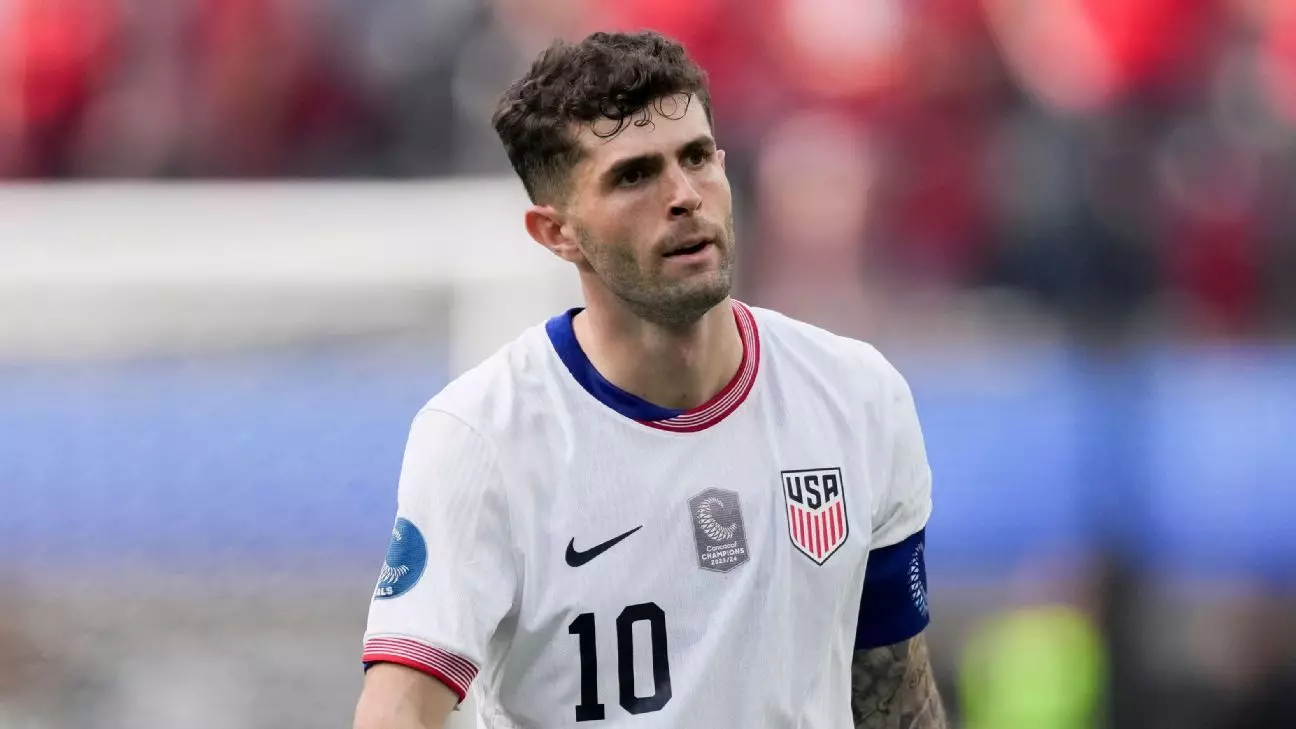The world of professional soccer is often ensnared in a web of expectations. Players are expected to consistently perform at peak levels, pushing their physical and mental boundaries. This relentless pursuit of excellence can lead to burnout, and for young talents like Christian Pulisic, the decision to prioritize well-being over national pride raises significant questions about the demanding nature of the sport. When he chose to sit out the Gold Cup after a taxing season with AC Milan, pundits like Landon Donovan publicly expressed their discontent, asserting that such decisions undermine the honor of representing one’s country. However, the context of these decisions requires a nuanced understanding of player welfare and longevity in competitive sports.
Landon Donovan’s Perspective: A Legacy of Passion
Landon Donovan, a cornerstone of American soccer history, articulates his disappointment while drawing comparisons to Cristiano Ronaldo’s commitment at age 40. Yet, one must ponder whether age alone validates his sentiment. Donovan’s passion for the sport is evident, but it stems from his own experiences, including a burnout epiphany that led him to step away from soccer for a period. His criticism of Pulisic indicates a deep-rooted belief in the unyielding spirit of wearing the national jersey, a sentiment that resonates powerfully among fans but may not acknowledge the changing dynamics of an athlete’s career today.
The world has evolved, and so too has the approach to player health and fitness. Understanding that top-level athletes face immense pressure not only during games but also during prolonged seasons is critical. This recognition prompts a conversation about what defines loyalty to one’s country. Pulisic’s decision may not be perceived as a lack of commitment but rather a thoughtful strategy in managing his career arc, far removed from the traditional bravado often celebrated in sports.
The Role of Player Welfare in Modern Soccer
Mark Pulisic’s counter-argument, grounded in a discussion sparked using AI technology, highlights a dimension often glossed over: mental health. By referencing Donovan’s sabbatical before the 2014 World Cup, Mark emphasizes the necessity for players to carve out time for self-care. The seasonal grind takes a toll on the body and mind, and the historical narrative that glorifies relentless competition without scrutiny may need a redesign in today’s context. The problem lies not in Pulisic’s choice but in an overarching culture that continues to idolize sacrifice without considering the repercussions of chronic fatigue and mental exhaustion.
Pulisic’s decision, therefore, transcends individual choice; it is emblematic of a larger conversation about athlete longevity and the pressures of international representation. The burgeoning discourse around sports psychology emphasizes the need for players to recognize their limits and take breaks when necessary to remain at optimal performance levels. This recognition infuses soccer culture with a necessary evolution, where mental health becomes as crucial as physical readiness.
The Need for Understanding in Sports Critique
While Donovan and his contemporaries may be frustrated by Pulisic’s absence from the Gold Cup, their critiques can inadvertently undermine a pivotal shift towards recognizing player autonomy. The criticism from figures like Donovan and Alexi Lalas, though rooted in passion for the game, must evolve alongside the players themselves. Young talents today operate in an environment vastly different from that of the past; thus, they must navigate their careers with a balance between personal well-being and collective responsibility, particularly with a World Cup on the horizon.
As we witness the paths our athletes choose, it becomes clear that their health should not be sacrificed at the altar of commitment. Rather, we should strive to foster an environment where players can thrive without the incessant weight of judgment. Ultimately, the conversation surrounding Pulisic’s choices teaches us that prioritizing one’s mental health is not a sign of weakness but a route to sustainable success in a sport that demands so much from those who dare to pursue it.


Leave a Reply